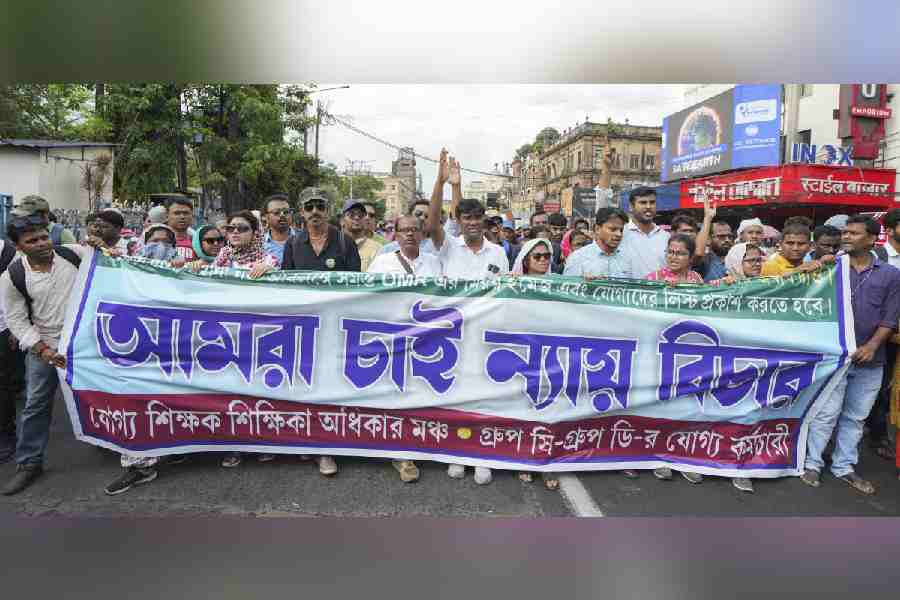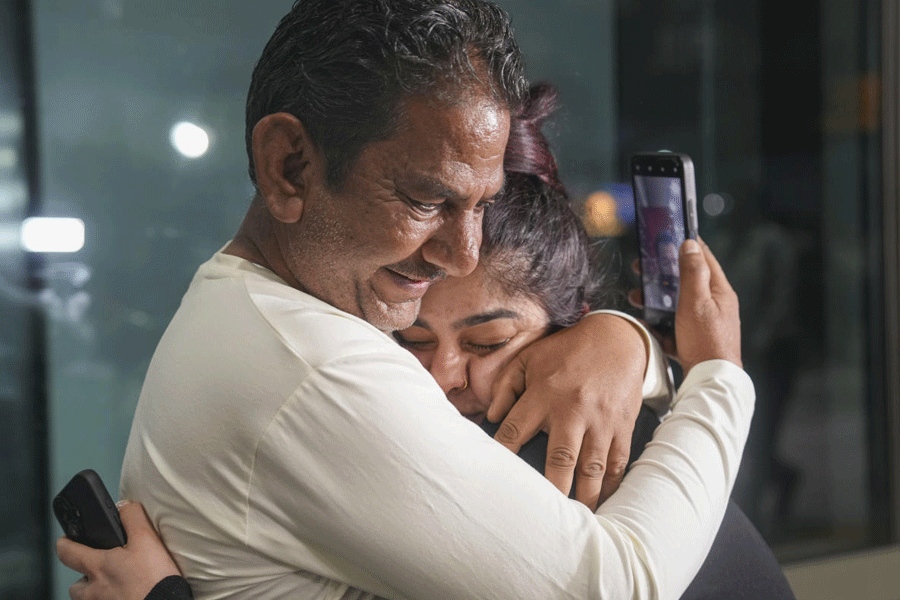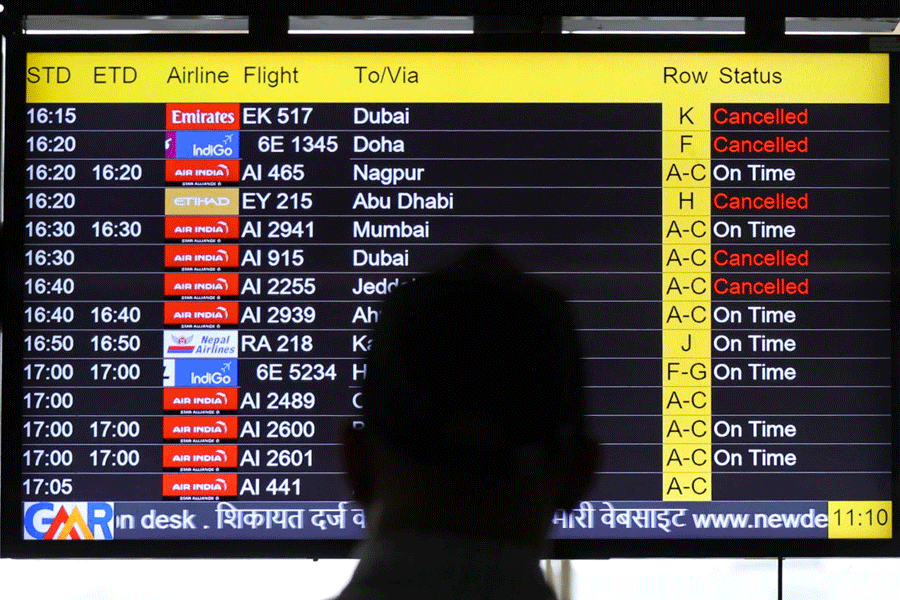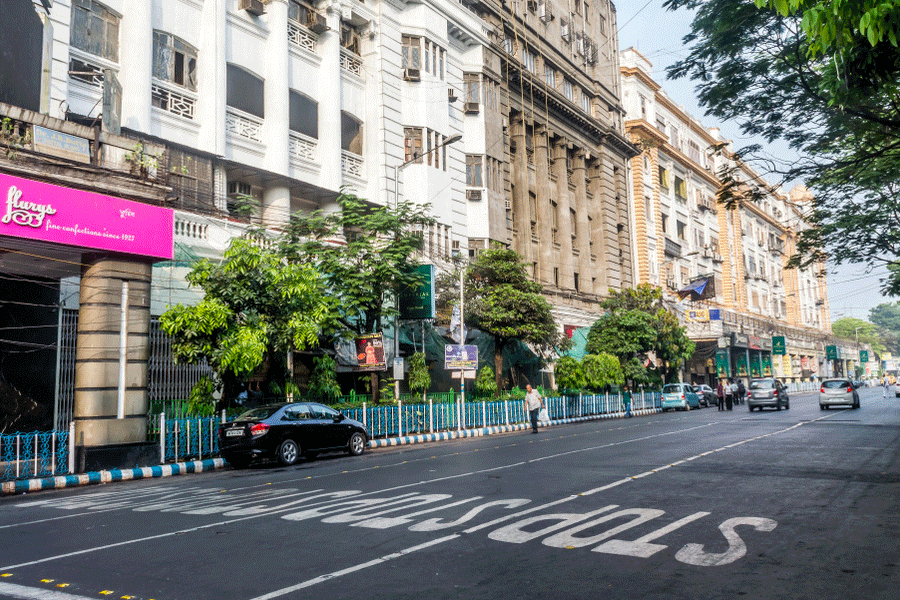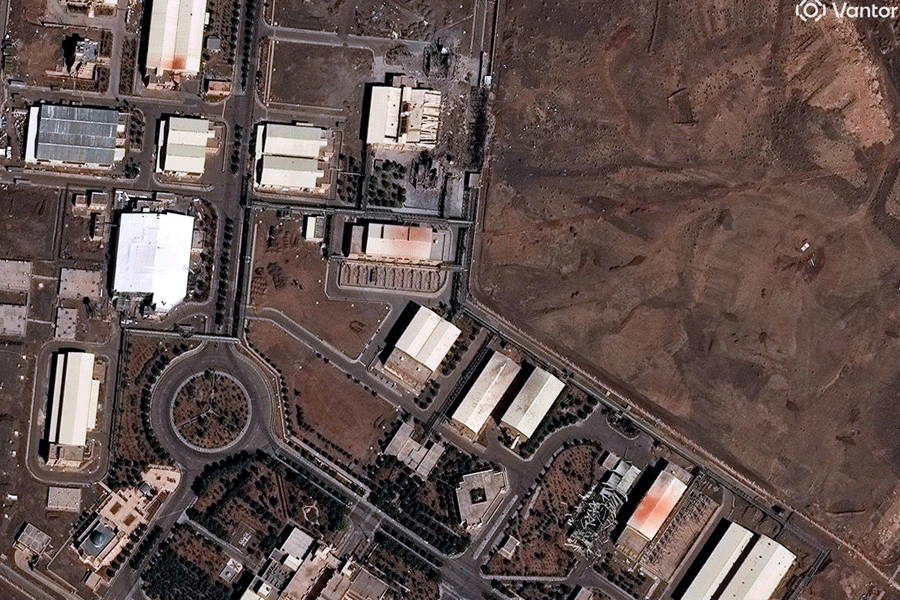A sense of gloom had descended on a part of Mayo Road where a section of dismissed school staff shifted their protest base from Salt Lake.
No one raised slogans; a pervading sense of dejection prevailed.
Some tracked news on their phones, while others spoke to their children back home over video calls. Hope was far.
The Telegraph spoke to three teachers as they sat beside the foot of Mahatma Gandhi’s statue.
Sarmila Bhowmik
Sarmila Bhowmik left her four-year-old daughter with her in-laws at Dinhata in Cooch Behar to travel to the city to fight for what is “rightfully mine”, the government job.
But the postgraduate in mathematics is now losing hope.
With every passing day since the Supreme Courtverdict that took away her job and that of 25,752 others, Bhowmik is getting a little more dejected.
Bhowmik taught mathematics in Classes XI and XII at Chowdhurihat Vivekananda Vidyamandir in Dinhata.
“I chose to participate in the protest rather thanjust watching my peers fight it out on the streets. But wecan’t see any end to it, and there’s no assurance even after so many days,” said Bhowmik.
Staying overnight in Calcutta when she is unemployed is expensive.
“My husband and I have booked a hotel room for ₹800 a day. Added to this are our food expenses. It’s not easy to keep spending with no certainty of when I will be employed again,” said the 32-year-old.
Her husband works in a private firm.
“How long can he extend his leave?” she said.
Recently, Bhowmik spent about ₹1 lakh on her treatment in Hyderabad.
“I am supposed to go back for a follow-up. But everything is so uncertain now.”
Her four-year-old daughter misses his mother.
“When will you come home?” asked her four-year-old son on a video call.
Rehana Khatun
Rehana Khatun had to put off her father’s pacemaker surgery and discontinueher mother’s physiotherapy sessions after the Supreme Court verdict rendered her jobless.
“We were consulting the doctor, and he advised a pacemaker for my father. But given the situation, it is difficult to prioritise the surgery,” she said.
Her mother is recovering from hip surgery. The doctor had prescribed physiotherapysessions.
“It comes to ₹2,500 a month. With no job, this is not an expense I can incur currently,” she said.
Khatun, a postgraduate in chemistry, taught physical science to students of Classes IX and X at Panchla Azeem Moazzam High School, Howrah. She got the job in 2019.
“We always knew that a government job provides security that a private one does not. My job had given a sort of relief to my ageing parents. As a daughter, I am feeling helpless,” she said.
Khatun and her husband live in a joint family with 12 members.
“My husband already has enough liability on him. I cannot burden him with more. As a financially independent woman, this is demeaning for me,” she said.
Anarul Shaikh
At 42 and with two boys, Anarul Shaikh cannot reconcile the fact that he has no job. His wife is a homemaker.
“My elder son is in Class IV, while the younger one, who is three, would have started school this year. I have postponed it for the time being,” he said.
Anarul’s responsibility does not end there. He has to foot his mother’s medicine bill, which amounts to ₹6,000 a month.
A former teacher of physical science at Rajarampur High School in Murshidabad, Shaikh has been in the city since Sunday.
“I am putting up at a relative’s place and spending the bare minimum. We don’t know how long this will continue. I have to sustain myself and my family,” he said.
He has a master’s degree in chemistry. Sheikh feels it is unfair to expect them to take a test at his age.
“With this mental condition, is it possible to write a test? There is no guarantee that I will be able to clear it, and even if I do, who knows what rank I will get? With two children to look after, it is not easy to prepare for an exam,” he said.
Shaikh feels the system has failed him, and has little faith in it. “What is the guarantee that there will be no botch-up again?” he wondered.

